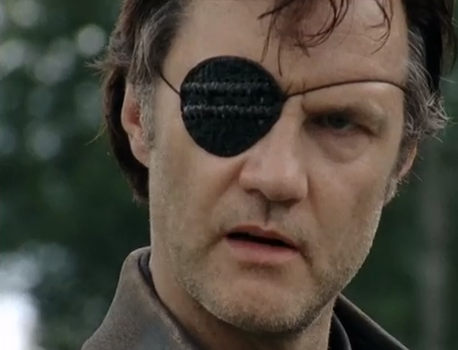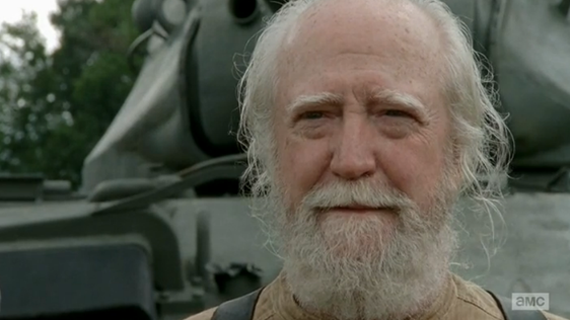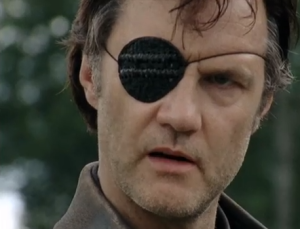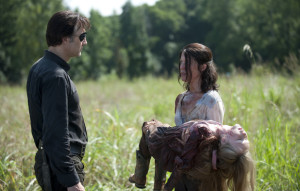It’s a little rough, but here’s my attempt at an Advent poem. They say you only get better with practice, right?
—–
He had finally arrived! The time had come!
Gather the shepherds, their sheep; who knows where from?
They saw a baby, in swaddling clothes he was placed.
What God saw was his loving extension of grace.
Bethlehem; “The House of Bread.”
Only on Him can we be fed.
A humble King born in a trough;
It was on his beaten back that God’s wrath was wrought.
A son born; Jesus his name.
He had come to give his Father glory and fame.
His advent foretold through clear prophecy,
“Cursed are those who hang on a tree.”
His soft newborn skin with that beautiful baby glow;
A lowly stable the place where God’s mercy was shown.
Then one day with blood trickling down his side,
He took the death that should’ve been mine.
Mary caressed him while all others were asleep,
Kissing the cute wrinkles in his feet.
In those same feet a nail would be driven;
But unto us a Savior was given.
Counting others more significant, in humility he came;
A servant to all in the form of a babe.
Though in the form of God, equality would not be grasped.
Emmanuel, “God with us,” had come at last.
The angels came, in the fields they sang;
A heavenly chorus and trumpets rang.
Dying for sinners, he stood in our place.
Now we can see him with unveiled face.
This gentle baby, the wise men did admire;
Of giving praise and worship they did not tire.
But then it came when he was hoisted up for all to see;
All laughed and mocked at this Jew from Galilee.
Some thirty years he spent living with us;
A King coming off his throne to crawl in the dust.
The empathetic High Priest, with him we can relate.
Drawing near with confidence, and someday entering Heaven’s gate.
Lo and behold, there is news of great joy!
It is only found in this newborn boy.
They saw a baby, in swaddling clothes he was placed.
What God saw was his loving extension of grace.

Photo Credit: Tambako the Jaguar via Compfight cc
This post is an excerpt from a hilarious book that I love and would highly recommend, called Younger, Restlesser, Reformeder: A Good-Natured Roast. If you want an easy and fun read about the new Reformed movement, pick this up here.
—–
Who Gets to be Called Reformed?
Before we get to specifics, there is the not-small question of who gets to be called reformed. This is a tough one. If you don’t sprinkle babies, are you really reformed? And without the “Reformed,” you’re just the Young & Restless, which sounds exceedingly worldly. Hmmm.
John Piper and Collin Hansen are both Baptists, just saying. For what it’s worth, Zach pastors a Baptist church and Ted (the authors) goes to a Reformed church – but neither of us sprinkle babies. However, Zach is Dutch, which gives him added cache. Ted, on the other hand, is German (his ancestral name is Von Kluck, not Van Kluck or even Vander Klucksma)…aaargh! This is all so complicated. And while we’re being honest, we both still read the NIV from time to time.
An easy out is to continually make the distinction between reformed and Reformed, but do you really want to walk around, saying, “I’m lowercase-r reformed?” Neither do we (so we’ll just stick with the lowercase to keep things simple).
At the end of the day, we needed a concrete formula. We needed certainty. We’re not postmodern, after all. So just grab a pencil and paper, and work through this simple equation:
CW + Ch(Rf) + RCL + CCC + @ – 10(TV) – 20(RW) – ($TBN/10) – (xWB) – 10Em = RQ
The Equation Explained
Number of Crossway books in your collection; plus number of children; times number of children named after reformed personalities; plus number of reformed conference badges/lanyards (T4G, Desiring God, Next, Gospel Coalition); plus Number of Confessions, Catechisms, and Creeds you subscribe to; plus number of hours weekly spent on challies.com, Deyoung’s blog, or any other Gospel Coalition blog; minus 10 if you have cable; minus 20 if you un-ironically have a Rick Warren or Joel Osteen book on your shelf; minus number of dollars pledged to TBN (divided by 10); minus number of times you’ve been watchblogged; minus number of years spent in your emergent phase (times 10); equals your reformed quotient.
Ben’s Note: This is a pretty harsh standard, so if you need to curve your number, add in the beard modifier (your appreciation for beards on a scale of 1-100, divided by 2).
Go ahead and figure out your number. Remember, God is watching…alllllways watching.
Once you have your number, here are the ranges where you might fall:
<0 If you’re elect, that’s news to God
1-5 You’re reading this book to trash it in your emergent blog.
6-20 Enjoy the climbing wall and gourmet coffee bar at your megachurch. You’re fooling no one.
21-50 There’s potential here, but we suggest that you stop coaching your kids’ Little League team, stop surfing ESPN.com, and start spending all of your free time (when you’re not spending time with your Proverbs 31 wife), trolling the YRR blogosphere. We also suggest spending a little bit more of your debt-free expendable income at the Monergism bookstore. Oh, and it’s time to at the “L” to your TULIP. You know who you are.
51-100 What do you think of someone who just does the bare minimum? Seriously, what do you think? Minus ten more points if you get that reference.
100-200 You’ve probably spoken or led a breakout session at a regional reformed conference. Congratulations! Things are looking up for you. Have you considered submitting a book proposal? We know you’ve got 50,000 words stashed away somewhere that you’ve never told anyone about. Maybe you can recycle some old blog posts.
My favorite movie of all-time is Forrest Gump, and it has been since high school. I have always loved the relationships in this movie and its unique take on history. I am totally that guy you don’t want to watch this movie with because I will quote every line. Growing up this film made me laugh and it made me curious about history, but one thing it never did was make me cry. I knew there were moments where I was supposed to, but it just never struck a chord with me. However, now I can’t sit through this movie without crying at least two or three times!
So what gives?
At the end of Paul’s letter to the church in Philippi – while he is cold and unkempt in a Roman jail – he writes these words:
Not that I am speaking of being in need, for I have learned in whatever situation I am to be content. I know how to be brought low, and I know how to abound. In any and every circumstance, I have learned the secret of facing plenty and hunger, abundance and need. I can do all things through him who strengthens me. – Philippians 4:11-13
Paul has a secret to being brought low, and he has a secret to abounding in his circumstances. That secret is Paul has Christ. In Christ our valleys and mountains need not be seen as such, but instead they are leveled out. Through the gospel we find a balance*, through the gospel we become more complete as redeemed people because we are being conformed to the image of Christ.
If you take one look at Paul’s first letter to Timothy, you can hardly back away without realizing Paul is seriously ticked off at certain people. Just look at the end of the first chapter alone and Paul is calling dudes out; he’s handing them over to Satan! Compare Paul’s tone in 1 Timothy to what he says in 2 Corinthians:
We have spoken freely to you, Corinthians; our heart is wide open…In return, widen your hearts also. – 2 Corinthians 6:11, 13
This second passage almost sounds like Paul is a romance novelist! Your heart is say what!? How can this be the same guy who in his other letters is handing people over to Satan, or who urges us to contend and fight strongly against false teaching? The picture we get from Paul’s ministry is that he could convey a wide range of emotions when they were appropriate; he was leveled out and more complete as a redeemed person. The saving mercies and grace of Christ through the power of the Holy Spirit were growing Paul to become more like his Savior.
The same should be true for us today. For those of us who were completely hard-hearted and unemotional prior to Christ giving us a new heart, we find that we begin to be more expressive and open to emotions. On the flip-side for those of us who were complete emotional train wrecks prior to Christ, we begin to find that we have a better control of ourselves and don’t lose ourselves in emotions as often. This is the power of the gospel at work in us, balancing and completing us.
It is for this reason Paul is able to tell the believers in Thessalonica not to grieve as those who have no hope (1 Thessalonians 4:13). We have our faith and hope in Christ, and that levels us out. In Christ we are given the strength to respond to all circumstances as Christ would. It should give us strength when necessary, as well as show us when it is appropriate to be weak. We have a King whose strength was shown in weakness, and it is that duality which should come alive in us.
—–
*I give credit where credit is due, and I must say I owe most of this narrative to my Pauline Epistles professor Dr. Jeon. Doc, if you ever read this…thanks!
Note: FULL SPOILERS for the Season 4 mid-season finale “Too Far Gone” are below.
—–
The Season 4 mid-season finale was quite a blow to the gut, was it not? Any fan of the show has probably come to expect big episodes like this; any fan of the comic probably already knew this wasn’t going to end well. In this week’s episode, we saw the full-on return of the Governor, the death of Hershel, the destruction of the home Rick’s group had built for themselves, the death of the Governor’s new “daughter” as well as numerous other fatal casualties. Throughout all of this the writers of the show have one theme they want you to see come to the foreground of the show: “Can you come back? Are you ever too far gone?”
This theme has been subtly played out in numerous ways beginning in Season 3 with the death of Laurie and now finally culminating in this week’s episode. Now in Season 4, this theme has been explored further. Rick has come back from his fake phone-call answering self, but no longer wants to be responsible for any decisions. Hershel routinely counsels Rick on what it means to “come back” from almost losing yourself. We see Rick beginning to learn this lesson, and helping to ground others who start to become “too far gone,” people like Tyreese who would otherwise go into a berserk rampage. Rick is able to make the decision to cast out Carol, who becomes “too far gone” and emotionally desensitized to death.
Three weeks ago the viewers finally meet the Governor again, now wandering aimlessly after taking in the consequences of all that he had done. In our first episode with the Governor, it almost seemed like he was on the path of redemption. Could it be that even though he was so far gone – to the point that he would needlessly murder countless innocents – he could still come back given the appropriate motivations? Unfortunately, this was not the case as we saw in the next episode how the Governor – or “Brian” – is still completely crazy.
All of these aspects and this theme finally came to a head in this week’s showdown. How did this theme play out?
Can You Come Back?
The mid-season finale climaxes at the “negotiations” of Rick and the Governor. At first, the Governor genuinely seems peaceable and willing to let the prisoners live. Of course as the viewers we know the Governor is crazy and that he understands this “peace plan” will never work. Attempting to reconcile the situation, Rick pleads with Brian and his people for a different option. He wants to let them know that we can all “come back” and we don’t have to do these bad things to survive:
Is this what you want? Is this what any of you want?…Look I’ve fought him before, and after, we took in his old friends, they become leaders in what we have here! Now you put down your weapons, walk through those gates, you’re one of us. We let go of all of it. Nobody dies! Everyone is alive right now, everyone who has made it this far. We have all done worse kinds of things just to stay alive. But we can still come back, we are not too far gone! We get to come back. And I know, we all can change.
This emotional speech from Rick is the “gospel” of the Walking Dead. It is the good news that despite all of the brokenness of this apocalyptic world, despite all of the bad choices you make, you can still come back from those dark places and be a good person. You can do the right thing. Rick has proved it, and so have the people of his group.
Ultimately, the Governor is not willing to accept this gospel. Like the Pharaoh of Egypt, his heart is too hardened and no gospel will change that. The result of the Governor’s unwillingness to accept this gospel is sin and death. His beloved “daughter” dies, his group dies, people in Rick’s group die, and ultimately he dies.
We Have a Greater Gospel
What can we learn from this theme of the Walking Dead? I’d like to suggest four things we can all learn:
1. Sin Brings Death
James 1:15 tells us that “…sin when it is fully grown brings forth death.” The consequences of the Governor’s greed, selfishness and revenge could only bring forth death; the death of his loved ones, the death of those around him, and ultimately his own death. There is no way around the consequences of our actions. While we might not back outrageous decisions like the Governor in our own lives, our sin is outrageous in the sight of God and it comes with outrageous consequences. Because of our sin you, me and everyone around us dies. It is a fact of life.
2. We Have a Greater Gospel
The gospel of the Walking Dead is that you can come back from all of the bad things you have done and do the right thing. You don’t have to be a bad person. While this is certainly a great message, it is not the ultimate message. The ultimate message comes from Christ our King. The Christian God does not just say to us “You can shape up and be a better person.” Not at all! Instead, the Christian God acknowledges that we CAN’T fix ourselves, but shows us the way through Christ. God doesn’t abandon us, he gives us Christ to take on our penalty of death-bringing sin and show us the measure of self-sacrifice and love that should motivate our lives.
But when the goodness and loving kindness of God our Savior appeared, he saved us, not because of works done by us in righteousness, but according to his own mercy, by the washing of regeneration and renewal of the Holy Spirit, whom he poured out on us richly through Jesus Christ our Savior, so that being justified by his grace we might become heirs according to the hope of eternal life. The saying is trustworthy, and I want you to insist on these things, so that those who have believed in God may be careful to devote themselves to good works. – Titus 3:4-8
3. Every Other Gospel Fails
While Rick’s “gospel” sounds nice and is a good message, it ultimately fails. It does not change the heart, but only addresses topical behavior. The reason why the Governor and those who follow him do not want to believe Rick’s gospel is because their desires are completely disoriented. No amount of “we can be at peace and do the right thing” can reorient self-obsessed people like the Governor. What they need is not a change of behavior, but a complete change of heart.
We don’t come back from our bad choices and sin through self-effort and trying harder. We come back by being given a new heart in Christ.
Scripture tells us that when we place our faith and hope in Christ and not in ourselves, God removes our heart of stone and gives us a heart of flesh (Ezekiel 36:26). We don’t need behavior change, we need a heart change and that is exactly what God gives us.
4. Real Change Only Comes in Christ
The Walking Dead is only a TV show. It paints us a picture of a reality where despite everything you’ve done, it is still possible for you to change yourself. But our life isn’t a TV show, and we don’t live in a prison surrounded by walkers. The truth is, we can’t change ourselves. No matter how hard we try, we will always do bad things and offend a holy and righteous God. Thankfully, we don’t have a God who leaves us to our own devices. Christ came and showed us the way, he bought us with his blood, and he left us with the gift of the Holy Spirit. Now, under the motivations of God’s great love for us IN CHRIST, we are able to walk in obedience. In Christ, we are able to put on a new self, an image that is created after the likeness of God and is motivated by true righteousness and holiness (Ephesians 4:24).
Like Rick’s gospel (put down your weapons, surrender and walk through the gates), Christ’s gospel requires a surrender of self and obedience to his commandments. We have a greater message and a greater king than any gospel that is of this earth! Christ doesn’t just tell us, he shows us. He doesn’t leave us, he becomes one of us. He doesn’t leave us empty handed, he gives us himself and His Spirit to teach and guide us. We aren’t just individual survivors, but he brings us into a family to walk with us.
Praise be to Christ for giving us far more than we could ever deserve!





